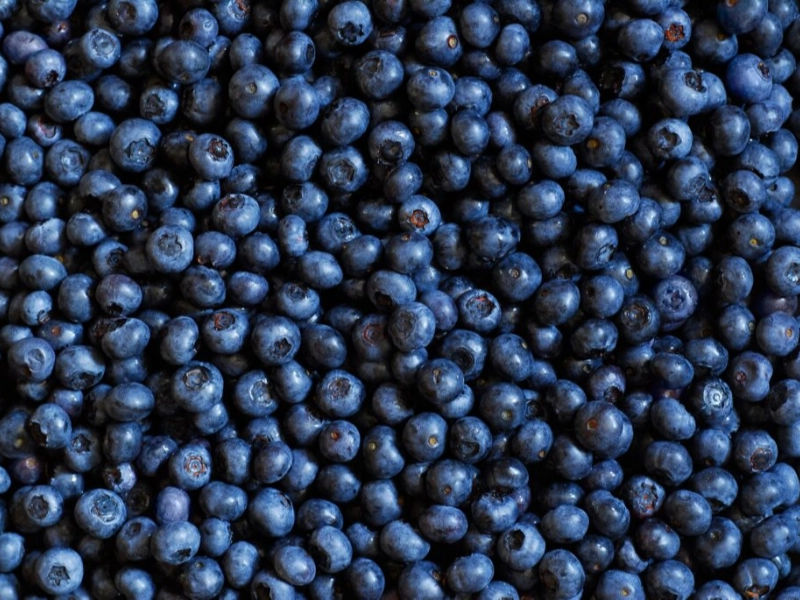Berries: Nature's Answer to Reducing Inflammation
Not only are berries great, but they also abound in nutrients that help to greatly lower body inflammation. Particularly in the fight against chronic inflammation, which is connected to several ailments including heart disease, diabetes, and arthritis, this natural cure is attracting interest for its medical advantages. Packed in vitamins, fibre, and antioxidants, berries provide a delicious approach to support general wellness. The several varieties of berries, their anti-inflammatory qualities, and how best to include them into your diet for best effect are discussed in this article.
The Power of Berries' Antioxidants

Various Berries and Their Uses
 Berries of all kinds have special health advantages, hence you should always include a range in your diet. Because of their great concentrations of vitamins C and K as well as antioxidants, blueberries are sometimes described as a superfood. By lowering blood pressure and cholesterol, they have been demonstrated to enhance cardiac health.
Conversely, raspberries are high in vitamins and fibre, which help to explain their anti-inflammatory action. They include ellagic acid, a chemical well-known for its potential to lower inflammation and advance cell health. Notable among other things are blackberries, which have anti-inflammatory qualities and a profusion of minerals and vitamins.
One of the most often consumed fruit, strawberries are bursting in vitamin C and antioxidants meant to lower inflammation and strengthen the immune system. Combining these berries can help you assist your body's fight against inflammation and maximise their health advantages.
Berries of all kinds have special health advantages, hence you should always include a range in your diet. Because of their great concentrations of vitamins C and K as well as antioxidants, blueberries are sometimes described as a superfood. By lowering blood pressure and cholesterol, they have been demonstrated to enhance cardiac health.
Conversely, raspberries are high in vitamins and fibre, which help to explain their anti-inflammatory action. They include ellagic acid, a chemical well-known for its potential to lower inflammation and advance cell health. Notable among other things are blackberries, which have anti-inflammatory qualities and a profusion of minerals and vitamins.
One of the most often consumed fruit, strawberries are bursting in vitamin C and antioxidants meant to lower inflammation and strengthen the immune system. Combining these berries can help you assist your body's fight against inflammation and maximise their health advantages.
Including Berries in Your Eating Plan
 Berries are easy and great addition to your diet. One might have several methods of appreciating these nutrient-dense fruits. You might toss them on yoghurt or waffles, mix them into smoothies or add them to your daily muesli. Salads can also feature berries, which offer a flash of taste and colour.
Drizzled with a bit of honey or lemon juice, a berry salad comprising strawberries, blueberries, and raspberries would be a cool delight. Another great way to enjoy berries year-round is freezing them. Smoothies or baking can benefit from frozen berries, so always have a supply of these anti-inflammatory powerhouses on hand.
Berries are easy and great addition to your diet. One might have several methods of appreciating these nutrient-dense fruits. You might toss them on yoghurt or waffles, mix them into smoothies or add them to your daily muesli. Salads can also feature berries, which offer a flash of taste and colour.
Drizzled with a bit of honey or lemon juice, a berry salad comprising strawberries, blueberries, and raspberries would be a cool delight. Another great way to enjoy berries year-round is freezing them. Smoothies or baking can benefit from frozen berries, so always have a supply of these anti-inflammatory powerhouses on hand.
Fiber's Role in Lowering Inflammation
 Excellent sources of dietary fibre, berries help greatly lower inflammation by means of their action. Crucially for general health, a healthy gut flora is maintained in part by fibre. A healthy gut flora helps control inflammation and boost immune response.
Studies point to a high-fiber diet helping to reduce inflammatory indicators in the body. Given their soluble and insoluble fibre, berries are especially helpful in this respect. While insoluble fibre advances digestive health, soluble fibre helps control blood sugar levels and reduces cholesterol. Including berries high in fibres will help your stomach function and lower inflammation in your body.
Excellent sources of dietary fibre, berries help greatly lower inflammation by means of their action. Crucially for general health, a healthy gut flora is maintained in part by fibre. A healthy gut flora helps control inflammation and boost immune response.
Studies point to a high-fiber diet helping to reduce inflammatory indicators in the body. Given their soluble and insoluble fibre, berries are especially helpful in this respect. While insoluble fibre advances digestive health, soluble fibre helps control blood sugar levels and reduces cholesterol. Including berries high in fibres will help your stomach function and lower inflammation in your body.
Berries and Cardiac Health
Heart disease is mostly caused by chronic inflammation, so berries' anti-inflammatory qualities are quite important for cardiovascular health. Regular berry intake has been linked, according to studies, to lower risk of heart disease and better measures of heart health. Berries can help lower cholesterol, regulate blood pressure, and enhance blood vessel action. In one study, for example, women who ate three or more servings of blueberries weekly had a 32% lower risk of heart attack than those who ate less berries. Including berries into a heart-healthy diet will help you be proactive in preserving your cardiovascular system.
The Course of Berry Research
Researchers are looking at fresh approaches to use berries' anti-inflammatory qualities as knowledge of their health advantages keeps developing. Future research could concentrate on the particular chemicals in berries that support their health and on the ideal dosages required for best effect. Furthermore, the function of berries in avoiding chronic diseases connected to inflammation, such diabetes and cancer, is attracting more attention. More studies will help to clarify how these mouthwatering fruits may be included into dietary guidelines meant to lower inflammation and boost general health. All things considered, berries are nature's response to lower inflammation and a tasty and nutrient-dense approach to promote your wellness. Berries can be quite helpful in reducing chronic inflammation and supporting general well-being because of their high antioxidant value, fibre, and unusual molecules. Including a range of berries in your diet can help you to appreciate their great tastes and also boost your health.







